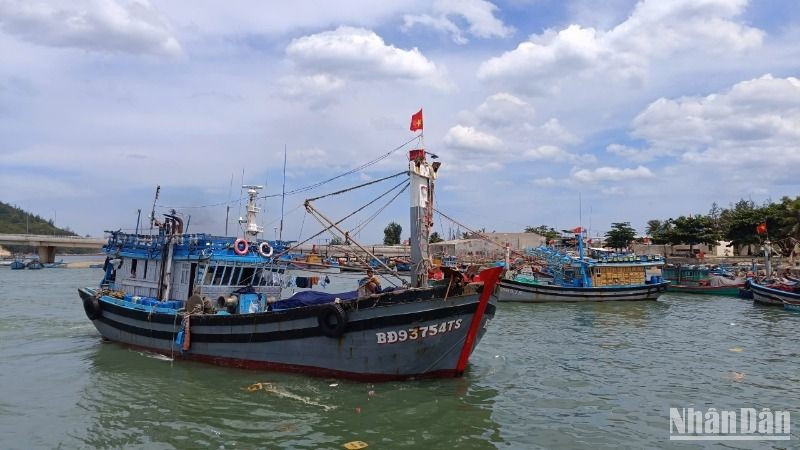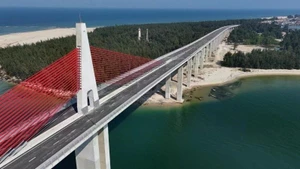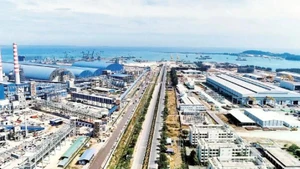Safeguarding the sea, preserving the fisheries
In response to the European Commission's (EC) “yellow card” warning, Binh Dinh has been implementing the strictest control measures – not only to protect marine resources but also to ensure the long-term development of the fisheries sector.
In the first months of 2025, the province has taken drastic solutions to tighten control over fishing activities.
All fishing vessels entering and leaving ports are subject to 100% inspection to ensure compliance with required procedures and valid fishing permits. Boats 15 metres or longer must have a functioning vessel monitoring system (VMS) before setting sail. Coastal radio stations operate all day and night to supervise vessels and act against violations of VMS regulations. The origin of caught seafood must be verified and certified according to strict procedures to minimise violations.
Notably, in the first quarter of 2025 alone, authorities penalised 31 cases of IUU fishing violations, with total fines amounting to 857.5 million VND. This is a positive sign that control efforts are being intensified. Border guard stations now operate around the clock to monitor fishing vessels and take immediate action againsts violations related to VMS management.
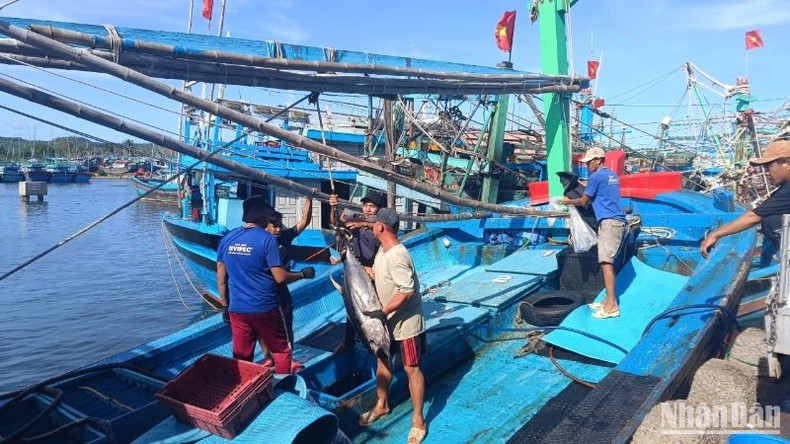 |
| All seafood must be traceable to its source. |
The Sub-Department of Fisheries, in coordination with the management boards of Quy Nhon, De Gi, and Tam Quan fishing ports, has strictly organised the process of verifying and certifying the origin of catches, ensuring full transparency. As a result, no fishing vessel from the province has been detained for illegal fishing in foreign waters since June 2024 – a commendable achievement that demonstrates the effectiveness of the province’s control measures.
Binh Dinh has gone beyond conventional control measures by launching a peak campaign running through to September 2025. The campaign focuses on rigorous patrols at sea, tighter coordination among the Provincial Border Guard Command, the Sub-Department of Fisheries, and local authorities to oversee fishing activities more closely.
Vessels lacking VMS equipment are prohibited from leaving port, while support is offered to help fishermen install the devices as required. A list of unregistered vessels or those with expired registrations is being compiled, with owners instructed to complete documents or seal, otherwise not permitted to leave the port. Coastal districts and towns must submit weekly reports on the progress of IUU prevention efforts to ensure continuous updates and timely issue resolution.
Nguyen Tuan Thanh, Vice Chairman of the Provincial People’s Committee, emphasised that there must be no complacency. Combating IUU fishing is an urgent task with direct implications for the development of the fisheries sector and export markets. From now until September 2025, it is essential to enforce legal compliance through inspections and patrols both at sea and at ports, and to strictly handle any vessels failing to meet the criteria for fishing operations.
The pressure to reform
The EC’s warning is not just a diplomatic concern; it directly affects Viet Nam’s seafood exports. Without prompt action, the threat of a “red card” – leading to export ban to Europe – is entirely possible. Given that Europe is one of Viet Nam’s largest seafood markets, such a ban would make thousands of businesses and tens of thousands of fishermen loose economic opportunities, seriously affecting the seafood industry.
To prevent this outcome, Binh Dinh has outlined a long-term vision to ensure sustainable livelihoods for fishermen and promote sustainable fisheries development. This includes targeted support to help fishing vessels that are not qualified for exploitation, helping fishermen stabilize their lives and avoid the risk of losing income.
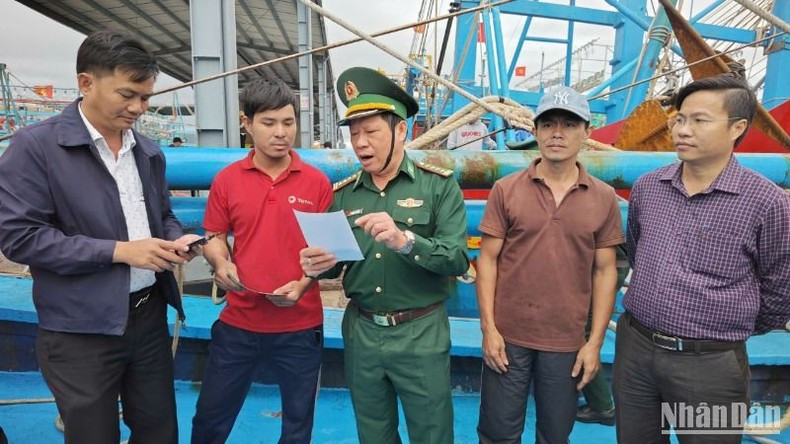 |
| The Provincial Border Guard regularly popularises and raises awareness among fishermen. |
The province is also adopting technological solutions to monitor and manage the fleet, helping to make supervision processes more transparent. In many areas, aquaculture models are being developed alongside traditional fishing to promote sustainable use of marine resources.
Pham Anh Tuan, Chairman of the Provincial People’s Committee, acknowledged the recent efforts of provincial departments, agencies, and localities. He called for continued, effective, and synchronised implementation of anti-IUU measures, identifying this as an urgent and central task in the pursuit of sustainable fisheries development.
To achieve the goal, the Chairman has directed specific actions: completing registration, inspection, and licensing for all vessels that have not yet meet the necessary conditions; dismantling vessels that are not eligible for registration or operational use; providing support for fishermen transitioning to new occupations; and strictly prohibiting vessels from departing without VMS equipment, while proposing support policies for device installation. High-risk vessels must be monitored closely, with coordination between enforcement bodies to ensure comprehensive oversight.
He also instructed the Provincial Border Guard Command, the Provincial Police, and the Department of Agriculture and Environment to work closely together to proactively prevent violations in foreign waters and, in particular, to rigorously crack down on individuals and organisations involved in brokering illegal fishing operations.
Binh Dinh is taking decisive action to combat IUU fishing. But success in this battle requires more than directions from management levels – it demands the active participation of every fisherman and every boat that sets out to sea.
